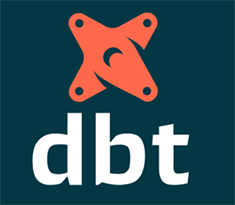Data quality is a critical aspect of any data analytics project, ensuring that the data being analyzed is accurate, consistent, and reliable. In the realm of modern data engineering, tools like dbt (data build tool) have emerged as powerful solutions for managing and transforming data. dbt not only facilitates data transformation but also offers robust capabilities for ensuring data quality throughout the data pipeline. Let’s explore the data quality capabilities of dbt and the various data quality checks that can be achieved.
1. Data Quality Capabilities in dbt:
a. Data Validation:
- Column Presence Check: Verifying the existence of required columns in the dataset.
- Nullability Check: Ensuring that essential columns do not contain null values.
- Data Type Check: Validating data types to ensure consistency and accuracy.
- Value Range Check: Verifying that data falls within expected value ranges.
b. Schema Validation:
- Schema Consistency Check: Ensuring consistency across tables or datasets in terms of column names, data types, and structures.
- Referential Integrity Check: Validating relationships between tables to ensure data integrity.
c. Business Rule Validation:
- Custom Business Rule Checks: Implementing custom checks tailored to specific business requirements or domain constraints.
- Cross-Column Integrity: Verifying integrity constraints that involve multiple columns or datasets.
d. Performance Monitoring:
- Query Performance Checks: Analyzing query performance metrics to identify inefficiencies or bottlenecks in data processing.
2. Data Quality Checks Achievable in dbt:
a. Row-Level Checks:
- Duplicate Detection: Identifying and handling duplicate records within datasets.
- Consistency Checks: Verifying consistency of data across rows, such as date ranges or unique identifiers.
b. Aggregated Data Checks:
- Aggregation Accuracy: Validating the accuracy of aggregated metrics or calculations.
- Completeness Checks: Ensuring completeness of aggregated data, such as counts or sums.
c. Data Transformation Checks:
- Transformation Integrity: Validating the integrity of data transformations, ensuring that data is transformed accurately according to defined logic.
- Historical Data Checks: Verifying the accuracy and consistency of historical data transformations or updates.
d. External Data Integration Checks:
- API Data Validation: Validating data retrieved from external APIs to ensure accuracy and reliability.
- Third-Party Data Validation: Verifying the quality and consistency of data obtained from third-party sources.
dbt offers comprehensive data quality capabilities that empower data engineers and analysts to ensure the accuracy, consistency, and reliability of their data assets. By implementing a variety of data quality checks, organizations can mitigate risks associated with poor data quality, enhance decision-making processes, and drive business success.
Get more useful articles on dbt





